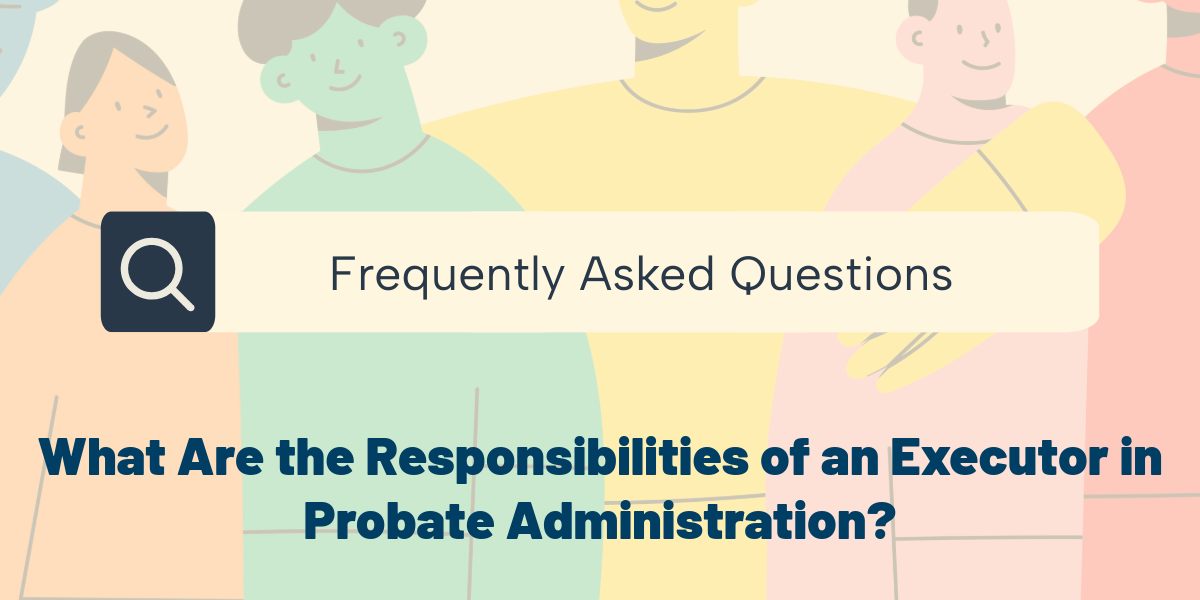What Are the Responsibilities of an Executor in Probate Administration in North Carolina?
1. Detailed Answer
An executor in North Carolina, also called a personal representative, has a legal duty to carry out the instructions in a deceased person’s will. North Carolina law spells out each step an executor must take to settle an estate. See N.C. Gen. Stat. § 28A-6-1. These steps protect heirs, creditors and the public.
1.1 Petition for Appointment
The first duty is to file a petition in the clerk of superior court. The court reviews the will and names the executor. Once approved, the executor receives letters testamentary, the official paperwork proving authority to act. (N.C. Gen. Stat. § 28A-6-1)
1.2 Notice to Heirs and Creditors
After appointment, the executor must notify beneficiaries and heirs of the probate process. The executor also publishes a notice to creditors in a local newspaper and sends written notice to known creditors. Creditors then have a limited time to file claims. (N.C. Gen. Stat. § 28A-15-1)
1.3 Inventory and Safeguard Assets
The executor identifies, collects and secures all estate assets. They prepare a detailed inventory and value each item. The inventory must be filed with the clerk’s office within 90 days of appointment. (N.C. Gen. Stat. § 28A-13-1)
1.4 Pay Debts and Expenses
The executor reviews valid creditor claims, pays funeral expenses, court costs and administrative fees. They should keep accurate records of all transactions. If estate funds run low, the executor must seek court guidance before approving or rejecting claims.
1.5 Tax Filings
North Carolina requires a state estate tax return if the estate meets the threshold. The executor also ensures federal estate tax filings, final income tax returns for the decedent and returns for any estate income. Missing tax deadlines can lead to personal liability. (N.C. Gen. Stat. § 105-50; IRS instructions)
1.6 Accounting and Final Distribution
Before distributing assets, the executor prepares a formal accounting of all estate activity. This report shows receipts, payments and balances. Heirs can review and object. When approved, the executor distributes property per the will or state law if there is no will. (N.C. Gen. Stat. § 28A-18-2; N.C. Gen. Stat. § 28A-19-1)
1.7 Closing the Estate
Once all duties are complete—debts paid, taxes filed, heirs satisfied—the executor petitions the court to close the estate. The clerk issues an order discharging the executor from liability.
2. Key Executor Responsibilities at a Glance
- File petition and obtain letters testamentary (N.C. Gen. Stat. § 28A-6-1)
- Notify heirs, beneficiaries and creditors (N.C. Gen. Stat. § 28A-15-1)
- Inventory and appraise estate assets (N.C. Gen. Stat. § 28A-13-1)
- Secure property—real estate, bank accounts, personal items
- Pay valid debts, expenses and taxes
- Prepare and file state and federal tax returns
- Provide court-approved accounting (N.C. Gen. Stat. § 28A-18-2)
- Distribute assets per will or intestacy rules (N.C. Gen. Stat. § 28A-19-1)
- Obtain court order closing the estate
Conclusion and Call to Action
Serving as an executor requires attention to deadlines, precise record-keeping and strict compliance with North Carolina statutes. If you have questions or need guidance, Pierce Law Group’s attorneys can help you fulfill your duties and protect your personal liability. Contact us today by emailing intake@piercelaw.com or calling (919) 341-7055.


